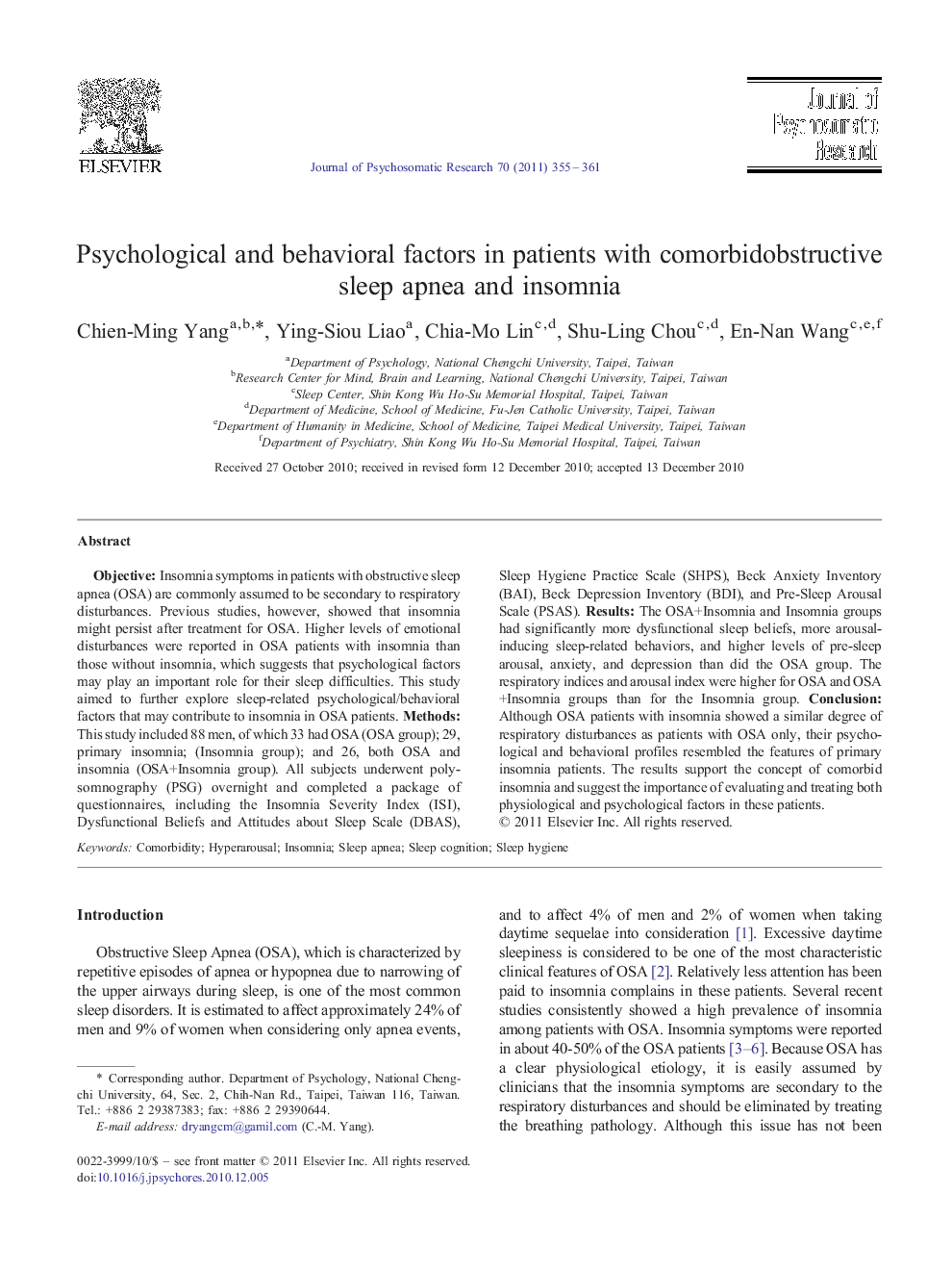| Article ID | Journal | Published Year | Pages | File Type |
|---|---|---|---|---|
| 949809 | Journal of Psychosomatic Research | 2011 | 7 Pages |
ObjectiveInsomnia symptoms in patients with obstructive sleep apnea (OSA) are commonly assumed to be secondary to respiratory disturbances. Previous studies, however, showed that insomnia might persist after treatment for OSA. Higher levels of emotional disturbances were reported in OSA patients with insomnia than those without insomnia, which suggests that psychological factors may play an important role for their sleep difficulties. This study aimed to further explore sleep-related psychological/behavioral factors that may contribute to insomnia in OSA patients.MethodsThis study included 88 men, of which 33 had OSA (OSA group); 29, primary insomnia; (Insomnia group); and 26, both OSA and insomnia (OSA+Insomnia group). All subjects underwent polysomnography (PSG) overnight and completed a package of questionnaires, including the Insomnia Severity Index (ISI), Dysfunctional Beliefs and Attitudes about Sleep Scale (DBAS), Sleep Hygiene Practice Scale (SHPS), Beck Anxiety Inventory (BAI), Beck Depression Inventory (BDI), and Pre-Sleep Arousal Scale (PSAS).ResultsThe OSA+Insomnia and Insomnia groups had significantly more dysfunctional sleep beliefs, more arousal-inducing sleep-related behaviors, and higher levels of pre-sleep arousal, anxiety, and depression than did the OSA group. The respiratory indices and arousal index were higher for OSA and OSA+Insomnia groups than for the Insomnia group.ConclusionAlthough OSA patients with insomnia showed a similar degree of respiratory disturbances as patients with OSA only, their psychological and behavioral profiles resembled the features of primary insomnia patients. The results support the concept of comorbid insomnia and suggest the importance of evaluating and treating both physiological and psychological factors in these patients.
